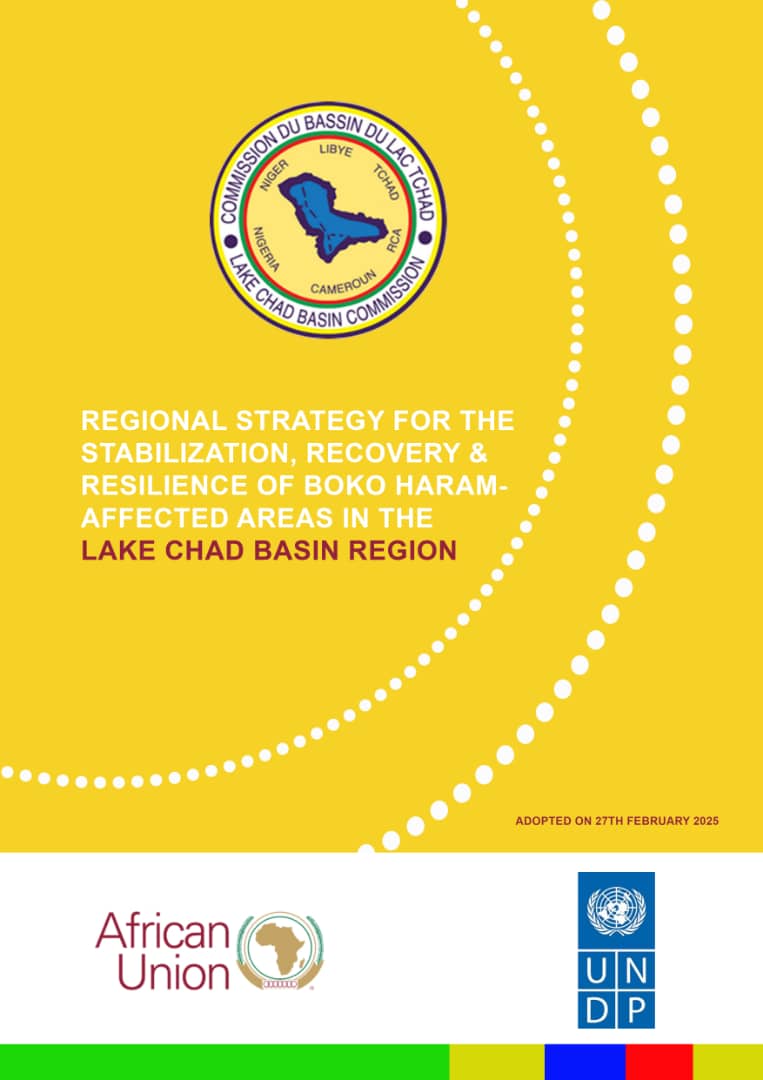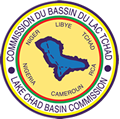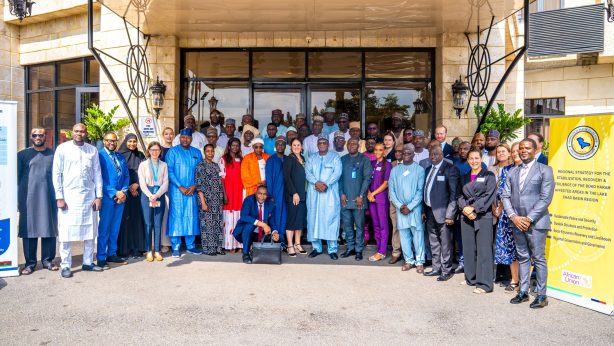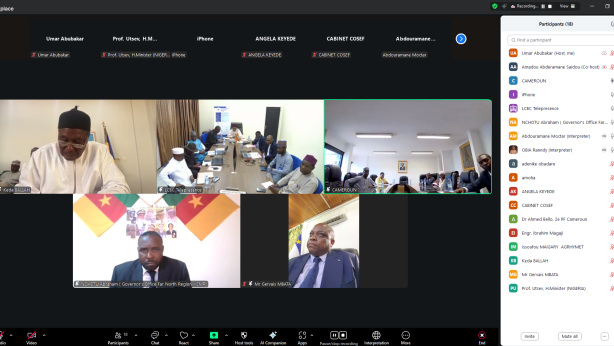Lake Chad Basin Commission Unveils Adjusted Regional Strategy for Stabilization, Recovery, and Resilience (2025–2030)

The Lake Chad Basin Commission (LCBC), in collaboration with the African Union Commission (AUC), is proud to announce the release of the adjusted Regional Strategy for Stabilization, Recovery, and Resilience (RS SRR 2.0) for Boko Haram-affected areas in the Lake Chad Basin. This revised strategy, covering the period 2025–2030, builds on five years of implementation experience and reflects a renewed commitment to peace, security, and sustainable development in one of Africa’s most fragile regions.
Originally launched in response to the devastating impact of violent extremism, displacement, and economic disruption, the RS SRR has served as a guiding framework for coordinated action across Cameroon, Chad, Niger, and Nigeria. RS SRR2.0 is the result of a year-long participatory and inclusive consultation process involving affected LCBC Member States, academic and research institutions, civil society organizations, international Non-Governmental Organizations, United Nations system organizations, LCBC donor partners (International Support Group), and other regional and international partners.
“This Strategy is the product of broad-based consultations and reflects a deeper understanding of the shifting dynamics on the ground. It offers a comprehensive roadmap to address the root causes of instability and unlock the region’s development potential,”Ambassador Bankole Adeoye, Commissioner for Political Affairs, Peace and Security at the African Union Commission, emphasized the significance of this milestone.
The RS SRR2.0 focuses on the following four strategic areas to tackle the multi-dimensional crises in the Lake Chad Basin region
- Sustainable Peace and Security
- Durable Solutions and Protection
- Socio-Economic Recovery and Livelihoods
- Regional Cooperation and Governance
It also well aligned with the African Union’s flagship initiative to “Silence the Guns by 2030” and the long-term vision as contained “Agenda 2063: The Africa We Want”. The strategy also underscores the importance of locally owned, gender-responsive, and inclusive governance as the foundation for lasting peace.
Ambassador Mamman Nuhu, Executive Secretary of the LCBC and Head of Mission of the Multinational Joint Task Force (MNJTF), highlighted the importance of this strategy for the affected Lake Chad Basin member states: “From violent extremism and insecurity to displacement and economic hardship, this strategy has served as a beacon of hope. The adjusted RS SRR is a product of inclusive and multi-stakeholder evaluation and adjustment, ensuring alignment with Member States’ priorities and responsiveness to evolving regional dynamics.”
As the region moves forward, the LCBC and AUC call on all stakeholders to intensify their support—politically, financially, and operationally—to match the resilience and courage of the people of the Lake Chad Basin. “Together, we can fulfil the promise of peace, justice, and prosperity—leaving no one behind,” Ambassador Adeoye affirmed.
👉 Access the complete strategy click here: RS-SRR 2.0


